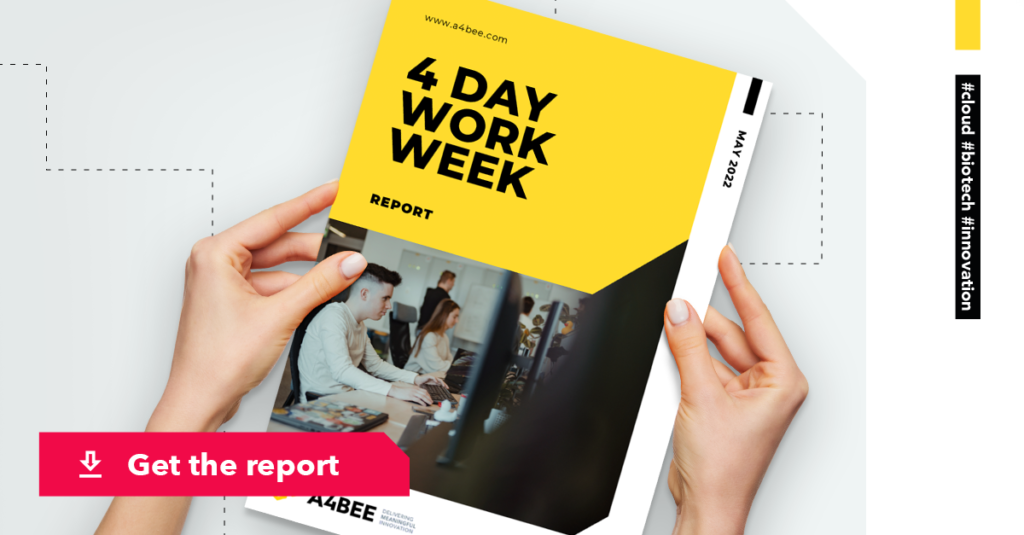4days work week
While the 4-day workweek is gaining big momentum, a European tech startup presents the results of its experimental 9 months trial project on the subject.
The 4 day week seems like it has been coming any day for the last dozen months. However, until today, besides theoretical considerations, there was a small amount of reliable data. After 9 months of the 4-day workweek trial – supported by researchers and psychologists – the tech startup A4BEE shares its findings and recommendations.
KEY HIGHLIGHTS
- The idea behind the four-day workweek is to achieve the same results in less time so that people have more time to pursue other interests, spend time with loved ones, and manage their lives.
- Employees who work a four-day workweek rate their overall lives as better, and their well-being has increased by 35.7%
- Being accountable for results rather than hours worked means that there is no need to cut salaries or benefits. This is a significant shift in how people think about and approach work and is a precursor to standardizing a shorter and flexible workweek.
- Employees are different and have diverse needs and expectations.
- Flexible working conditions and open, trusting culture are the most valued benefits and are correlated with higher employee engagement. And this is where employers should concentrate.

